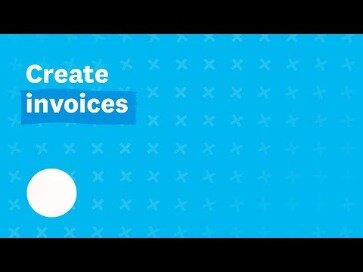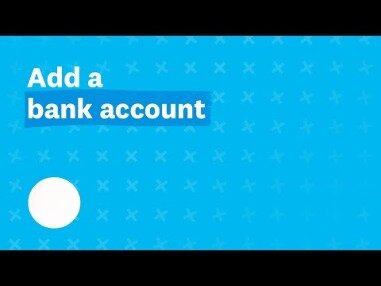
It can connect with popular ERP platforms as well as accounting systems like SAP, Oracle NetSuite, QuickBooks, and Blackbaud. This way, it is easier to import and export data as well as streamline your operations. There are numerous accounting products available to cater to different business sizes, types, and niches. To jumpstart your search, we compiled the top products in the category. You can explore each product, determine if it matches your requirements, and narrow down your choices.

ERP software is typically used by larger businesses while accounting software is more suited for small businesses. Xero is one of the most popular accounting software for small businesses. The Early plan costs $13 per month and includes basic features such as bank account reconciliation, bill and receipt capturing and short-term cash flow and business snapshot. The best accounting software enables easy collaboration between you and your accountant.
The 9 Best Accounting Software For Small Businesses
Sage Business Cloud Accounting includes numerous sales features such as quotes and estimate creation, credit notes, and the ability to customize invoices as needed. A scalable application with three plans available, Sage 50cloud Accounting can be beneficial to growing businesses. New features in FreshBooks include the ability to automatically capture receipt data, eliminating the need to enter information manually. Users can also now stop and later restart a timer when recording time for any project.

With almost as many features as QuickBooks Online, Zoho Books is an accounting software contender worth considering. The software is easy to use, and its invoicing features are unbeatable. Great customer support, a good number of integrations, and international features are also perks of the software.
Audit trails and cash flow statements, two examples from the 23 available, can be customized to your liking by applying filters or date ranges. But if you want even more insight into your data, you can send it to Sage Business Cloud Intelligence, a report-building platform that will give you lots of new angles to play around with. There’s a learning curve here, but if you’re dealing with lots of data, getting acquainted with it may help you make sharper decisions in the long run. Be realistic about how quickly your business is growing and ask the sales rep you’re working with how well their product grows with clients as their businesses scale. Of course, if your solution isn’t working for your company, you should find a new one as soon as you can. But you don’t want to have to switch software in six months because you’ve already outgrown it.
The software helps businesses avoid late payments, noncompliance, and over-tasking of the accounting team. It also has flexible payment reconciliation, AP, and financial reporting features that work with a myriad of payment gateways and ERP systems. As the QuickBooks Online screen (above) asks, how often do you file sales tax?
How do I choose the right accounting software for my business?
Solves the tedious process of accessing data for you and your clients. Like Kashoo, OneUp aims to make bookkeeping a much more streamlined process by automating routine tasks. Start your free trial, then enjoy 3 months of Shopify for €1/month when you sign up for a monthly Basic or Starter plan.
- And if you ever hit a snag, their customer support is just a call away.
- Most accounting software providers offer free trials, so you can try out the software before you commit to it.
- The best accounting software enables easy collaboration between you and your accountant.
- If you have less than $50,000 per year in revenue, you can sign up for the Zoho Books Free plan.
- Several programs we evaluated let you add more than one business to your account, though some companies charge extra for this convenience.
Still, if you can get away with the “Lite” version — which restricts you to five billable clients — then it’s a cheap way to start your business. Especially as FreshBooks discounts all the prices in the table below by 50% for the first six months. When an invoice is past due, follow these five steps to collect outstanding payments so you can get paid sooner. QuickBooks gives us real-time insight into our business operations and I appreciate that as it allows us to be more productive.
Many users rave about the quality of its customer support, the ease of setup, and the overall ease of use. Patriot offers everything you’d expect from accounting and payroll software, including expense tracking, invoicing, unlimited payroll runs, and free direct deposit. However, Patriot isn’t a great fit for every business, specifically those that need inventory tracking, job costing, or project management. However, for smaller businesses, freelancers, and contractors with less advanced accounting and payroll needs, Patriot is a top contender.
Neat: Best for receipt and expense tracking
It’s also a good fit for service-based businesses, such as consultants, landscapers and plumbers. Accounting software is also expected to change based on new GAAP updates that the Financial Accounting Standards Board (FASB) regularly issues. The FASB issues roughly a dozen updates per year, and though only some of those affect small business accounting, it’s still smart to track them. If you see any that affect small businesses, expect your accounting software vendor to update the platform accordingly. If not, you can contact the vendor and request a change or seek new vendors that more strongly prioritize GAAP compliance.
Its Sage Accounting plan normally costs $25 per month, but it offers 70% off your first six months, so you end up paying $7.50 per month. This comes with unlimited users, quotes, estimates, cash flow forecasts, purchase invoice management and snap and post receipts for free automatically for the first three months. The software also offers tools for businesses requiring financial compliance such as GAAP, ASC 606 and SOX. These insights include profitability ratios, cash positions, liabilities, fixed assets and taxes. NetSuite’s pricing is custom, so you’ll need to speak with a sales team member for a quote. If you generate (or expect to generate) a lot of invoices to send to clients and customers, we recommend that you find a comprehensive accounting application with invoice-generating features.
Picking the right one for you will help your business stay profitable. A service or project-based business needs to pass expenses on to clients and charge hourly rates for projects. If your business carries a lot of inventory, though, integrated tracking and management is a big plus. If you want an all-in-one business management software, Holded might be for you. Its suite of features is extensive — at least partially covering invoicing, accounting, payroll, project management, and inventory. Holded is a robust solution that offers accounting, invoicing, project, and inventory features — among several others.
Others, such as Zoho Books, have you upload an invoice template and map it to their fields. The dashboard is simple, just a list of the key information about your business. The reports section is surprisingly good, including a wide variety of options to see more into your finances.
best small-business accounting software tools
To integrate Sage with even more of your tech stack, connect Sage to Zapier. DEAR Systems offers a centralized platform that covers virtually every aspect of your business — from purchasing to warehouse management to job costing. That broad array of tools includes a robust suite of accounting features that can help any small business streamline processes like data entry and syncing invoices. Most small businesses use accounting software such as QuickBooks Online or Wave.
Expenses
If your business offers field service, you’ll absolutely love the convenience of mobile invoice management. Each accounting software on this list offers essential business accounting features and automations that will make your business’s accounting and payroll processes a breeze. We’ve included options to fit every budget and multiple business types, with some small business payroll software options as well. Top accounting features and tools provide visibility into the balance How to Calculate Depreciation Rate % From Depreciation Amount sheet and the financial workings of a company for accountants, executives, and management teams. Each team may use the data differently, either within the online accounting software or exported to business intelligence software, so it’s important that they have all the information they need. As the most commonly used feature of any accounting solution, electronic management and tracking of A/P and A/R is included in every system with varying levels of automation.
This includes invoicing and bank reconciliation in the US, plus VAT submission in the UK. Intuit’s QuickBooks Online is an obvious choice when selecting accounting software for a startup. It’s both intuitive and powerful, while the software’s APIs can integrate with payroll software such as Rippling to manage employee salaries or Bill.com to help with bill payments as needed. Your CFO is the single most important person you’ll need to convince.
Which accounting system is useful for small businesses?
I am certain your accounting will get a whole lot easier by using these cloud-based solutions. You get invoicing and all the required tools to better manage your accounting. Not to mention, customers of Quickbooks find an average of $3,534 in tax savings per year. You can connect your bank account and cards to easily import and sort expenses into appropriate categories.